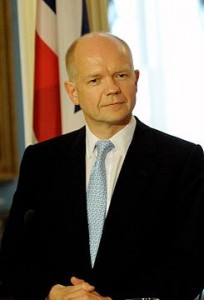 I just noticed this article from the VOA website regarding criticism it recently received from the Heritage Foundation for shutting down VOA’s Mandarin language shortwave radio service to China.
I just noticed this article from the VOA website regarding criticism it recently received from the Heritage Foundation for shutting down VOA’s Mandarin language shortwave radio service to China.
It’s may be once in a blue moon when I agree with a Washington think tank, but in this case, the argument is certainly valid.
VOA, following the lead of the BBC, Deutsche Welle and possibly other broadcasters, decided that it’s much more cost-effective to cut shortwave service and increase its web-based presence in China. Unfortunately, there are still many in China who rely on shortwave radio service for their uncensored view of the rest of the world. Indeed, China’s ruling party is concerned enough about this that they routinely jam VOA transmissions as a form of censorship. Of course, when it comes to shortwave radio, jamming is not often effective. But if broadcasters in the western world (meaning VOA, BBC, DW) decide not to bother broadcasting into China, limitation of service is 100% effective. Indeed, we’re “jamming” the service before it ever has a chance to leave our respective countries.
Access to the internet, on the other hand, is completely controlled by the Chinese ruling party. Should they decide to, they can simply pull the plug and leave their citizens in the dark, informationally speaking. If you question this, simply ask people in Fiji, Egypt and Burma–and, oh, yes– Iran is now tinkering with the idea.
China is an amazing country, not to mention a technological leader in communications; its government simply has a track record of filtering information in a manner which many view as a violation of a basic human right. And censorship is a thriving business: just ask Google. Or try to view VOA’s Manadarin website while traveling in China: you, too, may find yourself a victim of Chinese censorship.
Let us leave some information access available to those in China by keeping shortwave service alive there. There must be other cost-effective means of information sharing that doesn’t require throwing the baby out with the bath water.
Read the original VOA article here.






